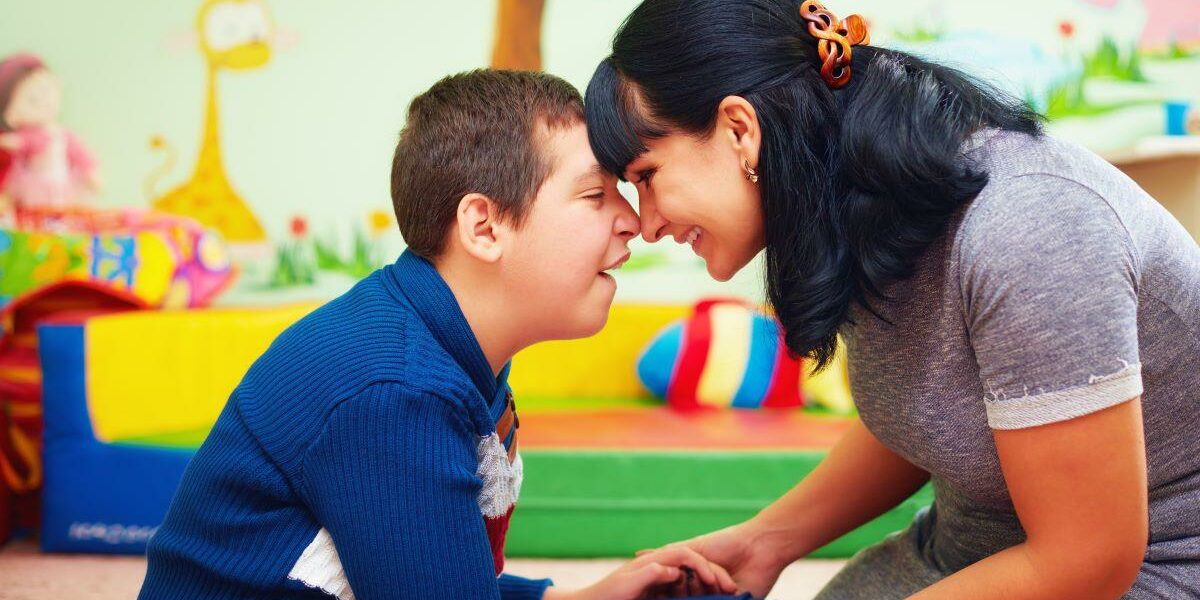
Jessica Mingins is a PhD student at Aston University, her Cerebra funded research is improving our understanding and assessment of anxiety in people with Fragile X syndrome and Cornelia de Lange syndrome.
My PhD is focused on mental health in rare genetic syndromes associated with intellectual disability. Primarily, my focus is on assessment of anxiety and factors associated with anxiety in Fragile X Syndrome and Cornelia de Lange Syndrome. I applied for this project after completing an integrated Masters degree at the University of Birmingham in Psychology and Psychological Practice. During my final year, most of my time was spent working on a meta-analysis summarising research on how intellectual disability may be linked to anxiety in autistic children. One of the key findings of the report was that anxiety measures for children with intellectual disabilities were extremely limited, and I became interested in learning more about how we can recognise anxiety sooner in children with intellectual disabilities.
 The first year of my PhD saw me completing secondary data analysis to refine a questionnaire for anxiety, the ClASP-ID, and assess its reliability and validity in a large group of people with intellectual disability. The results have been exciting, as the new measure shows good reliability and validity. Last year I also had the opportunity to attend a wide variety of training courses, which have been incredibly valuable to both my project and my professional development. This has included training on the gold-standard assessment of autism characteristics, the ADOS-II. I have also received training on a parent report interview of anxiety and training on how to use CardioWorkshop, a software which allows assessment of heart rate. Attending conferences and seminars has allowed me to showcase my work through oral and poster presentations, both online and in person. I especially enjoyed attending the Neurodevelopmental Disorders Annual Seminar in Edinburgh last June.
The first year of my PhD saw me completing secondary data analysis to refine a questionnaire for anxiety, the ClASP-ID, and assess its reliability and validity in a large group of people with intellectual disability. The results have been exciting, as the new measure shows good reliability and validity. Last year I also had the opportunity to attend a wide variety of training courses, which have been incredibly valuable to both my project and my professional development. This has included training on the gold-standard assessment of autism characteristics, the ADOS-II. I have also received training on a parent report interview of anxiety and training on how to use CardioWorkshop, a software which allows assessment of heart rate. Attending conferences and seminars has allowed me to showcase my work through oral and poster presentations, both online and in person. I especially enjoyed attending the Neurodevelopmental Disorders Annual Seminar in Edinburgh last June.
I’m now in the second year of my PhD and have submitted applications for ethical approval which will allow me to visit families of people with Fragile X Syndrome and Cornelia de Lange Syndrome. On these visits I will conduct direct assessments of anxiety, autism characteristics, sensory sensitivities and assess heart rate. Families will also complete sleep diaries and a range of questionnaires to assess characteristics related to anxiety. This means that I can assess the reliability and validity of the ClASP-ID in Fragile X syndrome and Cornelia de Lange syndrome specifically. I will also look at the relationships between anxiety, sleep and behaviours that challenge in Fragile X syndrome and Cornelia de Lange syndrome. I look forward to the next stages of the project, and especially to working with families in the near future.










Hi, really interested in this research. This is something I’ve been battling with and camhs don’t appear to be able to measure. If our school can help with your research or in any other way please feel free to contact me.
Thank you Wendy. We’ve passed your details on to the research team.